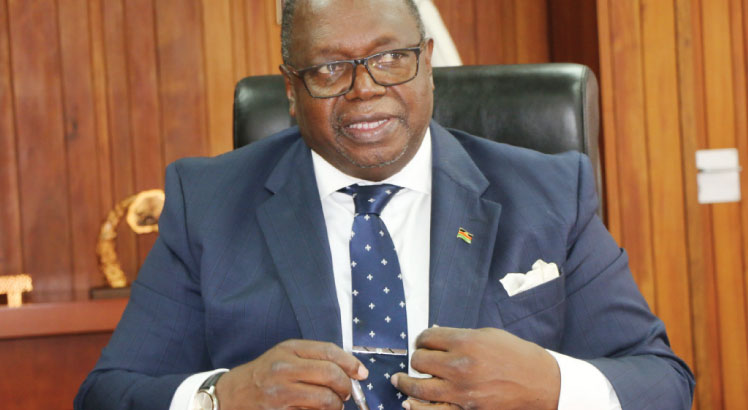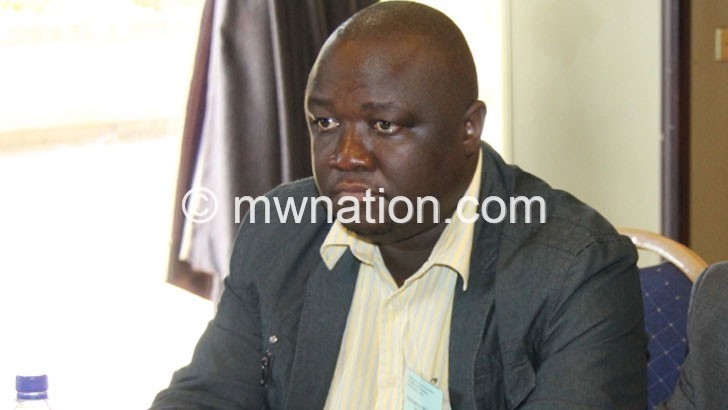RBM, MCTU differ on pay rise
Reserve Bank of Malawi (RBM) governor Wilson Banda has spoken against salary increment demands in response to the 44 percent devaluation of the kwacha, warning that if adopted it could worsen inflation, trigger job losses and pile up pressure on the national budget.
But in its reaction, the Malawi Congress of Trade Union (MCTU), a staunch advocate for salaries hike, has hit back, arguing that the central bank governor “is trying to say that workers should be at the losing end because of their economic or monetary policies”.

Banda said this during a press briefing in Lilongwe on Friday where he addressed the effects of the currency devaluation which the central bank announced earlier this month.
The local currency crash triggered calls for salary increments in response to the rise in the cost of living as amid the skyrocketing prices of goods and services.
However, Banda said: “There’s that reaction that things are now becoming expensive. We need to have higher wages from government or private companies and the like.
He said: “That in itself can create another round of problems. If government does not have the resources, it will create deficits. I am saying there should be restraint.
“For a private company where workers are saying we are downing tools if you do not pay us higher wages. The company either has an option of firing employees or increasing their salaries or wages or prices of the goods they produce.”

Banda added that wage increase demands were understandable, but feared the implications would outweigh the benefits.
“Wage [increment] demands are understandable, but if we carry out those demands let us not be surprised when [the effects] haunt us.
“You cannot devalue the currency by 44 percent and expect everything will be normal. We expected some turbulence on the market. We also expect that within a reasonable timeframe there will be stability in the system.
“When there is that stability, the exchange rate will be stable and domestic prices will be stable,” said the governor.
He banked the stability forecast on the increased flow of foreign exchange from development partners after the government clinched the International Monetary Fund Extended Credit Facility.
Banda also tore into traders for increasing the prices of goods and services unreasonably, blaming it for workers’ demands for salary increments.
Soon after the devaluation, MCTU—which promotes workers’ rights—proposed a 44 percent minimum revision of salaries for workers to cushion them against effects of the devaluation of the kwacha.
MCTU also asked government to increase, by 44 percent, the minimum wage of K100 000, which the union recently proposed.
In its reaction to RBM’s position yesterday, MCTU secretary general Madalitso Njolomole said: “They are missing a point! Entrepreneurs need workers and workers need entrepreneurs.
“We have to meet at equilibrium in terms of salaries. Workers are the drivers of this country’s economy. RBM should come up with proper measures of stabilising our economy, but not punishing a worker.
“Our demand is that salaries revision should be aligned with 44 percent devaluation or cautioning the cost of living.”
But Employers’ Consultative Association of Malawi executive director George Khaki, in his earlier reaction said generally it would not be sustainable for businesses to raise wages at the same rate as the inflation, especially when inflation is rising rapidly.
“One of the factors we consider in revising wages is the cost of living. Devaluation does not reflect the cost of living though it contributes to the same. Therefore, using devaluation alone for this purpose may not be the right approach,” he said.
In his national address on November 15, President Lazarus Chakwera hinted on civil servants getting a pay rise following the devaluation.
He said: “I have ordered the Minister of Finance to also include in that mid-year budget review (currently underway) provisions for a reasonable wage increase for civil servants.”






2 Comments